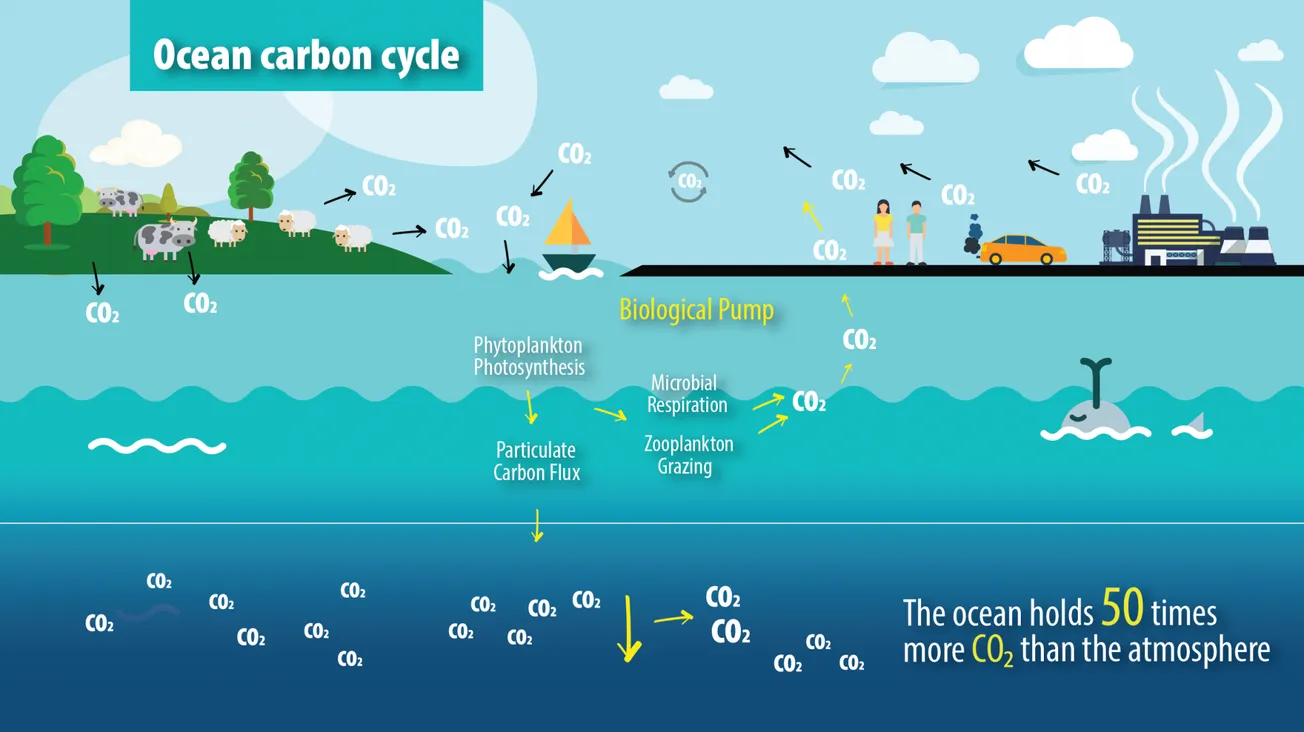Table of Contents
Let’s suppose that CO2 actually does control the average global temperature. It would thus be critical that the whole carbon cycle was extremely well understood in order for climate models to be accurate in their prediction of how mankind’s puny CO2 outputs are going to affect the future climate.
Once again an input factor used in those models has been found to be in error. This factor is the biological carbon pump (BCP) which is a mechanism by which CO2 is removed from the atmosphere and deposited as locked in carbon in the ocean interior and sediments on the seafloor.
A recent study has found that the BCP processes in the Earth’s oceans are capturing twice as much carbon dioxide (CO2) from the atmosphere as previously thought. This could help to improve future climate models.
The [BCP] cycle is primarily led by phytoplankton, a catch-all term for microscopic lifeforms that live in the ocean and encompassing photosynthesising bacteria, green algae and other forms of life.
Phytoplankton is thought to be responsible for around one per cent of the world’s biomass and is a key component of marine ecosystems. They use sunlight to create food and energy, absorbing CO2 in the process and releasing oxygen as a bi-product.
Once these creatures die, they sink to the bottom of the ocean floor, in effect creating a store of carbon-based material in solid form.
A team of researchers tried to figure out exactly how much carbon was being sequestered from the atmosphere during this process. The ability of phytoplankton to absorb CO2 is partly based on how much sunlight pierces the upper layer of the ocean waters.
They measured the depth of the ocean’s sunlit surface area, the euphotic zone, using a technique known as chlorophyll fluorescence detection that looks for the presence of photosynthetic phytoplankton in the deeper layers of the ocean.
This zone, home to most ocean-based life, varies significantly throughout the world, but is thought to be home to around 90 per cent of ocean-dwelling life.
The team used previous findings about the BCP in combination with their own research to estimate how fast the carbon particles are sinking. They found that about twice as much carbon sinks into the ocean per year than previously estimated.
Study leader Dr Ken Buesseler, a geochemist with the Woods Hole Oceanographic Institution, said: “If you look at the same data in a new way, you get a very different view of the ocean’s role in processing carbon, hence its role in regulating climate. […]









